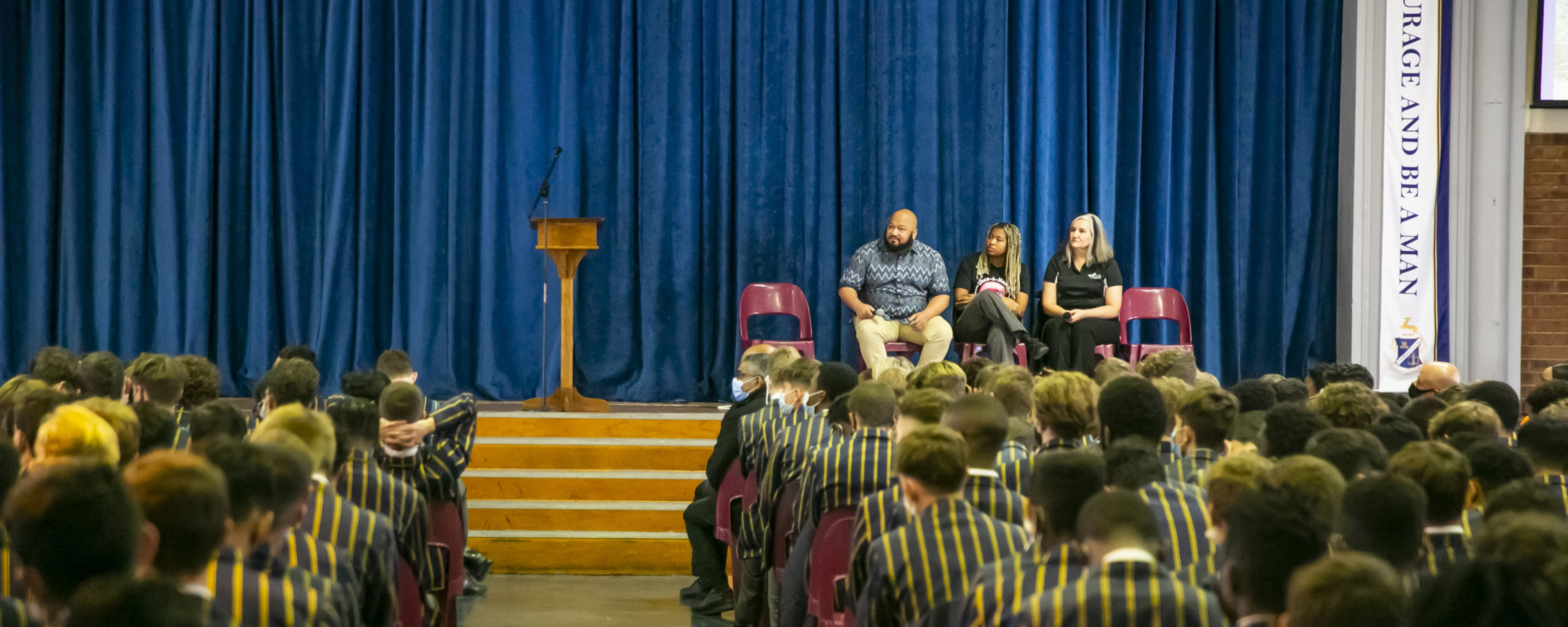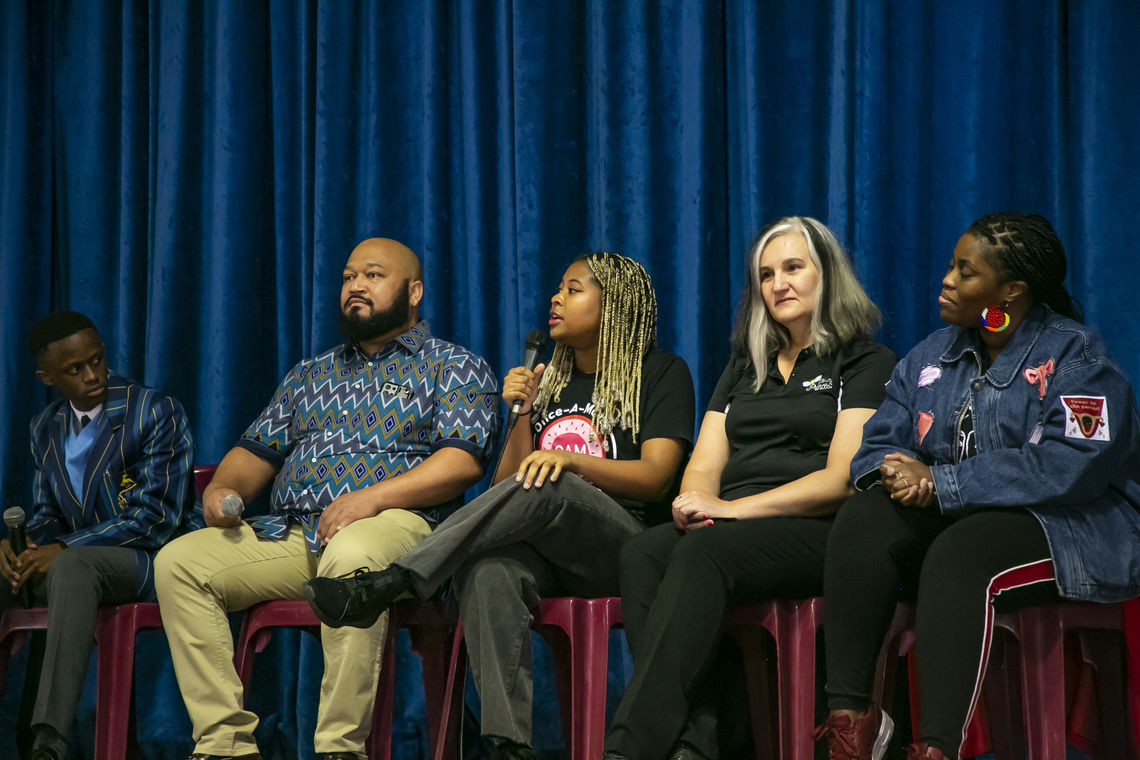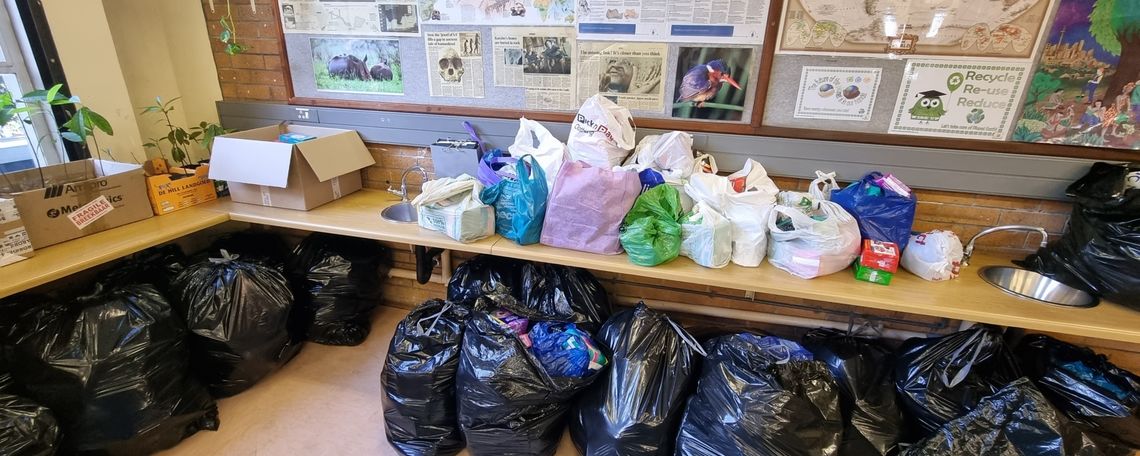
St David's Students Tackle Period Poverty
On the morning of Friday 27 May, the St David’s Marist Inanda College held a conversation assembly around the topic of period poverty, organised by our Life Sciences department. Period poverty refers to lack of access to menstrual products, education, hygiene facilities, waste management, or a combination of these, resulting from social, economic, political, and cultural barriers. It affects an estimated 7 million young women in South Africa. The lack of access to menstrual products means that many of these girls use unsanitary materials such as old clothes or newspapers, which can result in health problems and infections. Consequently, up to 30% of young women chose to stay home and miss school during their period. On average, this results in young women missing up to a week of school each month, and twelve weeks throughout the school year.
We were extremely lucky to have a panel comprised of four people actively working to eradicate period poverty and provide education around human rights issues regarding menstruation - Candice Chirwa, Jane Henry-Naiho, Liza Verberg, and Eusebius McKaiser. Each panellist provided valuable insight into the topic and educated all in the audience about the realities young women in impoverished communities face every month. The young men of the College were highly engaged throughout assembly and asked extremely insightful questions focused on what they as young men can actively do to help end period poverty in their lifetimes.
The Panellists

- Candice Chirwa, also known as the Minister of Mensuration, is a gender and mensuration activist, author, speaker, and academic, lobbying to destigmatise menstruation and bring an end to period poverty in South Africa. She has spoken about this topic on numerous platforms, including TEDx, African Women in Dialogue, and the Charlotte Mannya-Maxeke Institute. Candice is also the founder of Qrate, an NGO that promotes 'Eduliftment' for the youth of South Africa.
- Jane Henry-Naiho is the founder of the social enterprise, Once-A-Month, which empowers over 500 underprivileged refugee women with access to period products and menstrual education. In addition to this work, at nineteen, she is a member of ALA's 2022 graduating class and will be studying Biological Sciences at the University of Notre Dame as a Hesburgh Yusko Scholar.
- Liza Verburg is the leader of the Pad Princess initiative, which collects donated and shop returned period products and distributes them to those in need in informal settlements and disadvantaged areas. The initiative also holds educational uplifting talks around period poverty at schools, supplies maternity pads for new mothers in government hospitals, and provides pads for Dignity Bags given to abused women.
- Eusebius McKaizer is a well-known political analyst, radio talk show host, author, and lecturer. He is also on the board of the Mina Foundation, which works to address the issue of students having to miss school due to lack of access to menstrual products by globally distributing Mina menstrual cups as well as empowering the youth through education and mentorship.
Following this powerful conversation assembly, the Life Science department organised a collection for menstrual products across the College on Monday, 30 May. The drive collected over 1200 packets of pads and 150 boxes of tampons, which have been donated to various organisations who will distribute these products to those who need them most.
We would like to thank the Life Science department for organising the assembly with panellists who are very prominent and knowledgeable in this field, and the subsequent collection. An extremely valuable conversation among our young men has been launched, and we are excited to see the tangible societal changes these conversations will bring.








